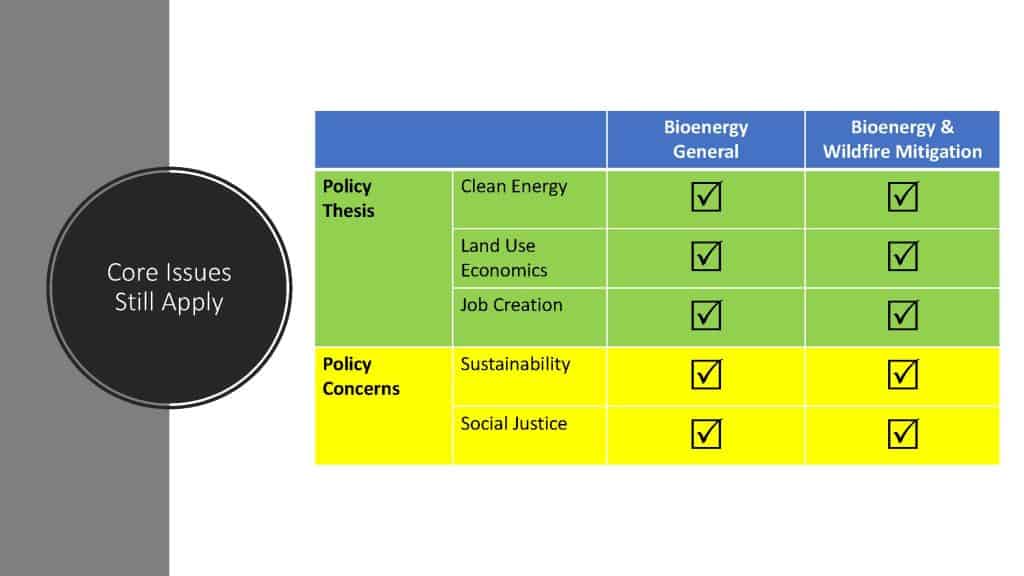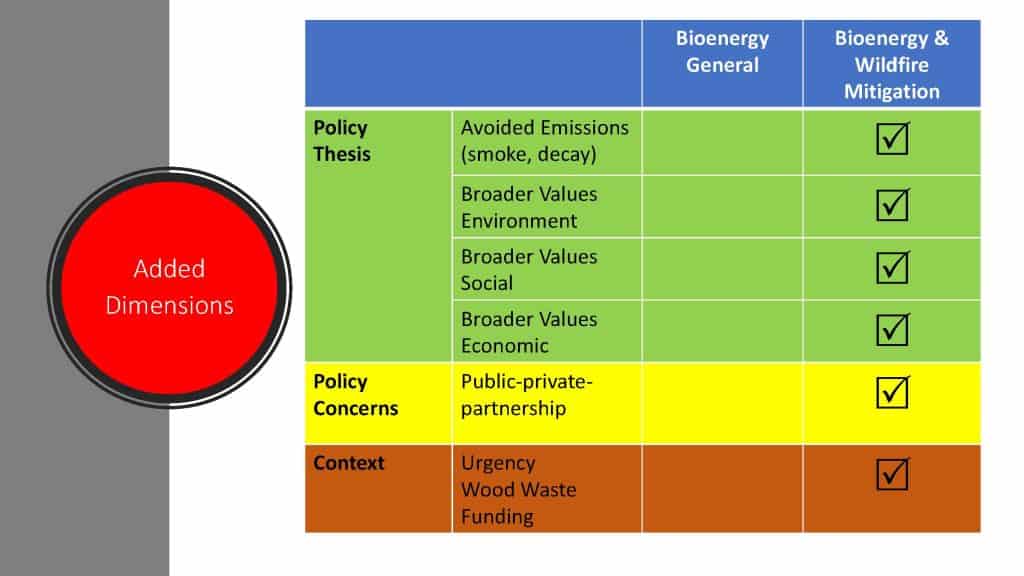Here’s a link to all of Bioenergy series webinars organized by the Yale Forest Forum. They have links to the recordings and the slides.
I took the slides above from the presentation by Matt Donegan, the Chair of the of Oregon Governor’s Wildfire Response Council. This should be of particular interest to Oregonians. If you only have a bit of time/interest, just check out the slides.
Summary:
The Potential Role of Bioenergy in Mitigating Wildfire in the West
Record wildfire seasons continue across the US West, increasingly comprised of unnatural and catastrophic events owing to climate change, excessive fuel accumulation and development within the Wildland Urban Interface (WUI). The comprehensive costs of these wildfires are staggering, when considering costs of suppression, property and ecosystem degradation, carbon emissions, human health impacts, infrastructure damage including water, and numerous other direct and indirect effects. To contain these costs, excess fuels must be removed to restore wildfire-resilient landscapes and to protect vulnerable communities. Fuel treatments, in turn, entail significant costs, potentially combined with carbon emissions if wood waste is left to burn or decompose. An oft-proposed solution is the development of wood waste markets including biofuels, potentially combined with carbon capture technologies. To develop biofuels markets at the scale needed to address the growing wildfire problem in the West, a complete system must be designed including economic incentives recognizing multiple public values, and policies to stabilize supply sources and ensure adequate workforce development.
I watched this one, it’s really good and goes into the nitty-gritty of the technologies of interest.
Daniel L. Sanchez – Assistant Professor of Cooperative Extension, University of California-Berkeley
Daniel L. Sanchez studies engineered biomass & bioenergy systems that remove CO2 from the atmosphere. Trained as an engineer and energy systems analyst, Sanchez’s work and engagement spans the academic, nongovernmental, and governmental sectors. As an Assistant Professor of Cooperative Extension, he runs the Carbon Removal Lab, which aims to commercialize sustainable carbon dioxide removal technologies, and supports outreach to policymakers and technologists in California and across the United States
Innovative Wood Products for Carbon-Beneficial Forest Management in California
Natural carbon sinks can help mitigate climate change, but climate risks—like increased wildfire—threaten forests’ capacity to store carbon. California has recently set ambitious forest management goals to reduce these risks. However, management can incur carbon losses because wood residues are often burnt or left to decay. This study applies a systems approach to assess climate change mitigation potential and wildfire outcomes across forest management scenarios and several wood products. We find that innovative use of wood residues supports extensive wildfire hazard reduction and maximizes carbon benefits. Long-lived products that displace carbon-intensive alternatives have the greatest benefits, including wood building products. Our results suggest a low-cost pathway to reduce carbon emissions and support climate adaptation in temperate forests.
I haven’t checked out the others but they are probably good as well. My pet peeve (as discussed with the organizers) is that western fuel treatment residue bioenergy tends to get ignored in national/Coastal discussions of bioenergy around the world or chips for European export in the SE, so that’s why I focused on these two. As always, anyone is welcome to view and write a post or comment about what they think is interesting about them.
The two western webinars are not so much about bioenergy itself, but more about “what the heck are we going to do with all this material?”

